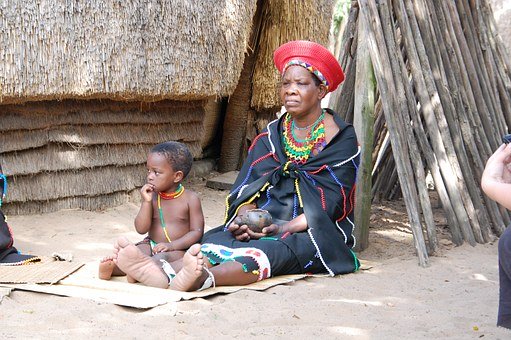Lockdown will have long term effects if household income is lost, researchers say

The impact of the lockdown on children, will be aggravated by any loss of jobs or livelihoods resulting from measures to control COVID19
Although evidence on the ongoing COVID-19 pandemic suggests that children are less at risk from infection than other age groups, children do get infected, and are also affected by the disruptions that result from the pandemic. So says Professor Julian May, director of the Centre of Excellence in Food Security (CoE-FS).
The current lockdown in South Africa starkly illustrates the many ways in which children’s lives can still be directly and dramatically affected by COVID-19. 11.5 million of South Africa’s children under the age of 10 years, live in households with other adults in addition to their direct care-givers.
“This means that in cases where caregivers are affected by the virus (directly or indirectly), children may be exposed to the repercussions,” explains Winnie Sambu, PhD candidate at the University of Cape Town, whose research is funded through the CoE-FS.
The situation can be worsened in cases where caregivers are expected to isolate in order to protect children from the risk of infection. “Indeed, children may well become the caregivers of adults,” Sambu adds. This, together with precautionary measures promoted by governments and global health organisations; to wash hands thoroughly and sanitise regularly, pose challenges in informal settlements where water is not available, and sanitation facilities are poor.
According to Dr Coretta Jonah, Project Leader of the Child Nutrition Programme of research at the CoE-FS, “if households use their already scarce resources to buy sanitisers and hygiene products, this may come at the cost of food and other essentials.”
As a result dietary diversity may be reduced, increasing the risk of micro-nutrient deficiencies
Research shows that a third of South Africa’s children live below the food poverty line; with over 800,000 children aged under six years old living in households where children reportedly went hungry in 2018.
“The impact of the lockdown on these children, will be aggravated by any loss of jobs or livelihoods resulting from the measures to control COVID19,” Professor May submits. If parents or caregivers, lose their jobs, are unable to work or lose their markets because of the lockdown, food insecurity will rapidly follow, he adds.
For young children, the nutritional shock that will follow will result in increased wasting and stunting. These are known to have long-term effects on the health and education outcomes of children. Stunting and wasting also compromise children’s immune systems. The same systems that can make the difference between mild or critical COVID-19 infection.
While the two week lockdown extension announced by the President on 9 April is necessary – to slow the spread of the virus, while preventing economic collapse and hunger – it is important for government and all stakeholders to work together to ensure we do not endanger children in these unprecedented circumstances.
“Collaboration between government, community based organisations and social protection agencies is needed to quickly mobilise resources targeted at those most in need,” says Professor May.
related Articles
CoE-FS grantees, researchers take part in the 2024 Montpellier Process
The CoE-FS grantees were joined by students from Australia, Brazil, Canada, China, Kenya, the Netherlands, Senegal, Spain, the UK, and…
World Food Day 2023: CoE-FS director Prof Julian May chats to CapeTalk
On World Food Day 2023, Prof Julian May spoke to CapeTalk about the importance of water for food and nutrition…
‘If we fail on food, we fail on everything’
“If there’s one thing I take away, [it’s that] ‘if we fail on food, we fail on everything’,” says CoE-FS…



